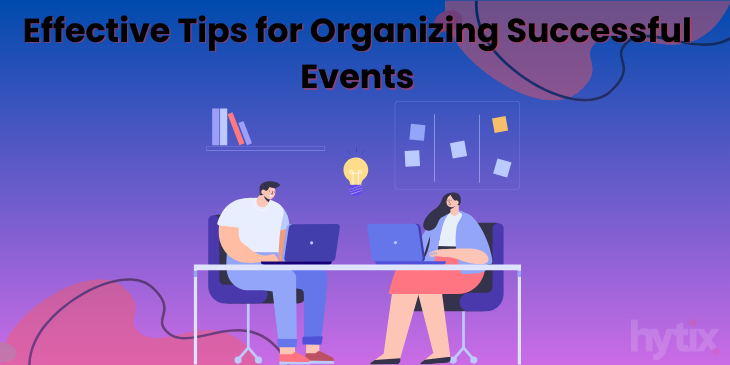Contents
Organizing an event is a complex yet rewarding endeavour that requires meticulous planning, attention to detail, and effective execution. Whether you’re planning a corporate conference, a music concert, or a community festival, the key to success lies in a well-organized event. In this comprehensive guide, we will delve into the most effective ways to organize an event, covering crucial aspects such as event ticketing, event management, crowd management strategies, and the use of event management software.
Understanding the Basics of Organizing an Event:
Define Your Event Objectives:
Begin by clearly defining the goals and objectives of your event. Identify the target audience and determine the purpose of the event.
Create a Budget:
Establish a comprehensive budget that includes all potential expenses. Allocate funds for venue, catering, marketing, staff, and unforeseen costs.
Selecting the Right Venue:
Consider the space, location, and conveniences of prospective venues. Ensure the venue aligns with the theme and objectives of your event.
Event Ticketing Strategies:
Choosing an Event Ticketing Platform:
Explore various event ticketing platforms available in the market. Consider factors such as user-friendliness, fees, and integration capabilities.
Designing and Printing Tickets:
Create visually appealing tickets that reflect the event’s branding. Utilize professional printing services for high-quality tickets.
Implementing Pricing Strategies:
Set ticket prices strategically based on your target audience and event goals. Consider early-bird discounts, group rates, and VIP packages.
Leveraging Event Organizing Software:
Benefits of Event Organizing Software:
Explore the advantages of using event organizing software. Streamline event setup processes such as registration, ticketing, and attendee management.
Features to Look for in Event Organizing Software:
Evaluate software options based on features like registration forms, payment processing, and data analytics. Choose software that integrates seamlessly with other event management tools.
Event Management Best Practices:
Creating a Comprehensive Event Timeline:
Develop a detailed timeline that includes pre-event, during-event, and post-event activities. Allocate specific tasks to team members to ensure smooth execution.
Effective Communication and Marketing:
Utilize multiple channels for event promotion, including social media, email campaigns, and partnerships. Implement a cohesive marketing strategy to maximize attendance.
Vendor and Sponsor Management:
Establish strong relationships with vendors and sponsors. Clearly outline the objective and output to ensure a successful event is organized.
Crowd Management Strategies:
Ensuring Safety and Security:
Prioritize attendee safety by implementing security measures. Collaborate with local authorities to address potential risks.
Contingency Planning:
Develop contingency plans for unexpected scenarios. Have a team in place to address issues such as medical emergencies or technical glitches.
Optimizing Crowd Flow:
Design the layout of the venue to optimize the flow of attendees. Implement signage and staff to guide attendees efficiently.
Conclusion:
In conclusion, organizing a successful event requires a comprehensive and strategic approach. By understanding the basics, implementing effective ticketing strategies, leveraging event organizing software, and following event management best practices, you can create a memorable and seamless experience for attendees. Remember, the key to success lies in careful planning, attention to detail, and the ability to adapt to unforeseen circumstances. With the right tools and strategies in place, you can confidently organize events that leave a lasting impression on both attendees and stakeholders.
